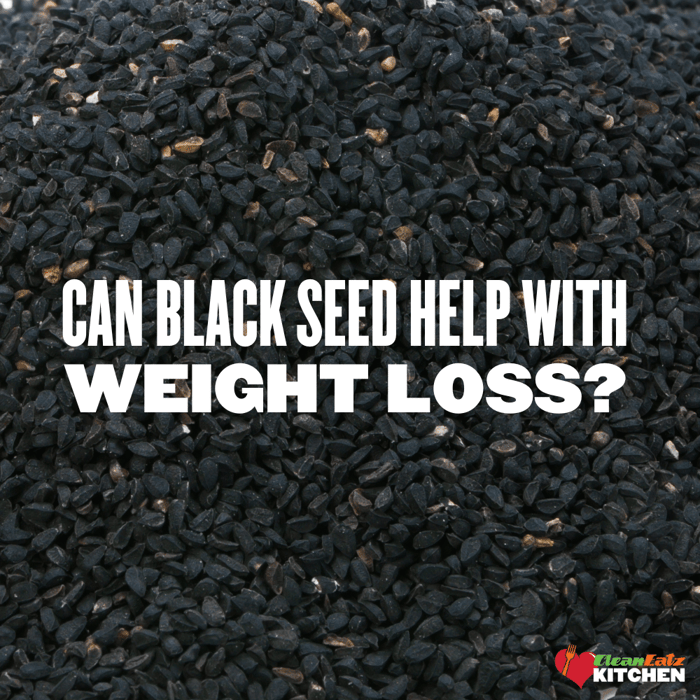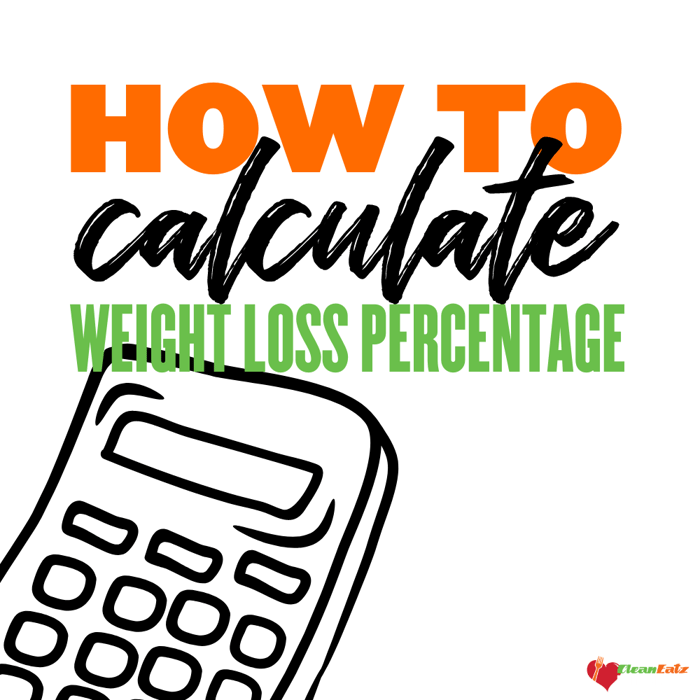Black Seeds for Weight Loss: The Science & Safety

Tina Sassine, RD, MPH
Nutrition
|
Weight Loss
01/14/2026 8:15pm
18 minute read
Quick Answer: Black seed (Nigella sativa) may provide a small additional weight-loss benefit when used with a calorie-controlled diet and lifestyle changes — not as a stand-alone solution. A 2023 meta-analysis found that black seed supplementation led to an average weight loss of about 1.5 kg (3.3 lbs) and BMI reduction of 0.58 kg/m² compared to placebo over 6-12 weeks. However, effects on waist circumference were not significant. Clinical trials used 1-3 grams of powder or 500-2,000 mg of oil daily. Important: Black seed can interact with diabetes medications, blood thinners, and blood pressure drugs. Consult your healthcare provider before starting supplementation.
Table of Contents
- Introduction: The Ancient Seed Making Modern Headlines
- What Are Black Seeds? (And What They're Not)
- Why Black Seeds May Support Weight Loss
- What the Research Actually Shows
- Black Seed Forms: Powder vs. Oil vs. Capsules
- How to Buy Quality Black Seed Products
- How to Use Black Seeds for Weight Loss
- 5 Easy Ways to Add Black Seeds to Your Diet
- Safety, Side Effects & Drug Interactions
- 7 Common Mistakes People Make with Black Seed
- Frequently Asked Questions
- The Bottom Line
Last updated: January 14, 2026
The Ancient Seed Making Modern Headlines
Every few months, a "miracle" supplement takes over social media.
You've probably seen the claims: "Black seed oil melted my belly fat!" or "This ancient remedy is better than Ozempic!" And if you’ve been around the supplement world long enough, you already know the hype doesn’t always match reality.
Here's the thing about black seed (Nigella sativa): it's not new. This tiny black seed has been used for over 3,000 years in traditional medicine—archaeologists even found it in King Tut's tomb. The Prophet Muhammad is reported to have said it "cures every disease except death." That's quite a claim.
But the real question is: Does modern science support the hype—especially when it comes to weight loss?
After reviewing the research, the answer is more nuanced than influencers want it to be. Yes, black seed may offer a modest boost for weight loss and metabolic health. No, it won’t transform your body on its own—no supplement can replace the basics of a calorie-controlled diet, adequate protein, and consistent movement.
In this guide, you’ll learn exactly what you need to know about black seed for weight loss: what the research actually shows, the best dosage and form, key safety considerations, and how to use it effectively alongside a realistic nutrition plan. Let’s separate evidence-based benefits from social media hype.
What Are Black Seeds?
Black seeds come from Nigella sativa, a flowering plant native to the Middle East, South Asia, and North Africa.
Despite common names like "black cumin," these seeds are completely unrelated to regular cumin (Cuminum cyminum). They come from the buttercup family, not the carrot family.
You might also hear black seeds called:
- Black cumin seed
- Kalonji
- Black caraway
- Nigella
- Black onion seeds
The main active compound in black seeds is thymoquinone, which makes up roughly 30–48% of the essential oil.
Research suggests thymoquinone plays an important role for most of the seed's biological effects, including antioxidant, anti-inflammatory, and metabolic properties.
Black seeds also provide beneficial nutrients like healthy fats (including linoleic acid, an omega-6), along with protein, fiber, and small amounts of vitamins and minerals.
Why Black Seeds May Support Weight Loss
Black seed isn’t a shortcut to fat loss, and it won’t work without lifestyle changes. However, research suggests several mechanisms that could give you an edge when combined with a proper weight loss plan. Here’s the science behind its potential benefits:
Blood Sugar and Insulin Support
One of black seed's most well-documented effects is on blood sugar regulation. When your blood sugar spikes and crashes, you get hungry, crave carbs, and often overeat.
A comprehensive review suggests that thymoquinone may improve insulin sensitivity by increasing muscle GLUT-4 transporters, which helps skeletal muscle take up glucose more efficiently.
Clinical trials have shown black seed can modestly reduce fasting blood sugar by about 10 mg/dL and improve HbA1c (a long-term blood sugar marker) in people with prediabetes or type 2 diabetes.
More stable blood sugar means fewer energy crashes and less appetite-driven overeating. This is particularly relevant for people managing metabolic conditions.
For comprehensive information on diabetes-friendly eating, see our Ultimate Guide to the GLP-1 Diet.
Inflammation Reduction
Chronic low-grade inflammation is increasingly recognized as a contributor to weight gain and metabolic dysfunction. Inflammation can block insulin signaling, promote fat storage, and disrupt the hormones that regulate appetite.
Black seed has demonstrated significant anti-inflammatory effects in clinical trials. A 2024 crossover study in overweight women found that black seed supplementation (2,000 mg/day for 8 weeks) significantly reduced inflammatory markers IL-1β and serum levels of leptin—the hormone that regulates appetite and energy balance.
Participants also showed reductions in body fat mass and visceral fat.
Appetite and Satiety Effects
Some researchers believe black seed may directly influence appetite hormones beyond its effects on blood sugar and inflammation.
Animal studies have shown thymoquinone affects pathways involved in fat storage and appetite regulation.
A clinical trial specifically examining appetite found that black seed supplementation led to a significant decrease in appetite alongside improvements in body composition parameters.
This matters because sustainable weight loss requires eating in a calorie deficit without feeling miserable. Anything that naturally reduces appetite, without stimulants or dangerous ingredients, can make the process easier. Of course, this works best when combined with high-protein, high-fiber meals that already promote satiety.
Check out our guide to the 100 Best Foods for Weight Loss for the foods that keep you fullest on fewer calories.
What the Research Actually Shows
Let's cut through the marketing and look at what systematic reviews and meta-analyses (the highest quality evidence) actually demonstrate about black seed and weight loss.
A 2023 meta-analysis published in the Journal of Functional Foods analyzed randomized controlled trials and found:
- Body weight: Modest but statistically significant reduction in body weight
- BMI: Significant reduction of 0.58 kg/m² vs. placebo
- Waist circumference: NOT significant (reduction of 2.54 cm, but confidence interval crossed zero)
- Hip circumference: NOT significant
- Waist-to-hip ratio: NOT significant
An earlier 2018 meta-analysis found similar results: significant reductions in body weight (1.76 kg) and BMI (0.85 kg/m²), but waist circumference changes weren't significant.
What does this tell us?
Black seed supplementation produces modest but statistically significant weight loss over 6-12 weeks. The effects appear more related to overall body weight than to specific fat distribution.
Important Context
These results should be interpreted carefully:
- Study participants were typically overweight or obese adults
- Most studies lasted 6-12 weeks (long-term data is limited)
- Participants often followed calorie-restricted diets
- Effects were on top of—not instead of—diet and lifestyle changes
- There was significant variation between individual studies
Bottom line: Black seed may provide a small but measurable additional benefit for weight loss. That can be meaningful, but it’s not a substitute for nutrition fundamentals—it won’t dramatically change results if diet, protein intake, sleep, and activity aren’t already in place. For context on effective overall supplement strategies, see our comprehensive Best Supplements for Weight Loss guide.
Black Seed Forms: Powder vs. Oil vs. Capsules
Black seed comes in several forms, each with different concentrations, costs, and conveniences. Here's how they compare:
| Form | Pros | Cons | Best For |
|---|---|---|---|
| Whole Seeds | Whole food, fiber included, cheapest option | Peppery flavor, harder to dose precisely | Cooking enthusiasts who like the flavor |
| Ground Powder | Easy to add to foods, affordable, fiber retained | Strong flavor, needs mixing | People who enjoy adding to smoothies/yogurt |
| Cold-Pressed Oil | Higher thymoquinone concentration, versatile | Strong taste, calorie-dense (~120 cal/tbsp) | Those who want potency and can handle taste |
| Softgel Capsules | Convenient, no taste, precise dosing | More expensive, may contain fewer active compounds | People who want convenience/dislike the taste |
Important dosing note: As black seed products vary widely in concentration and potency, teaspoon-based dosing is not standardized and may not reflect what was studied in research. In clinical trials, black seed has most commonly been used as 1–3 g/day of powder or approximately 500–2,000 mg/day of oil/extract, typically for 6–12 weeks. However, supplement quality and thymoquinone content can vary significantly, and these products are not FDA-approved to treat medical conditions.
People who are pregnant, breastfeeding, scheduled for surgery, or taking medications—especially for diabetes (glucose-lowering), blood pressure, or blood thinning—should consult a healthcare provider before use.
Which form is most effective? Some evidence suggests black seed oil may be slightly more potent than powder, possibly due to higher thymoquinone and fatty acid content, though both forms have shown benefits in human trials. However, both forms have shown benefits in clinical trials.
A note on calories: Black seed oil is calorie-dense like any fat—about 120 calories per tablespoon. If you're counting calories for weight loss, factor this in.
How to Buy Quality Black Seed Products
The supplement market is notorious for inconsistent quality and inaccurate labels. Here's how to choose a black seed product that actually contains what it claims:
What to Look For
- Third-party testing: Look for products tested by independent labs (NSF International, USP, ConsumerLab). This verifies purity and potency.
- Thymoquinone content: Quality oils should list thymoquinone percentage (ideally 1-3% or higher). Products that don't list this may be lower quality.
- Cold-pressed oil: For liquid oil, cold-pressed preserves more active compounds than heat extraction.
- Origin information: Seeds from Egypt, Turkey, and India are traditionally considered high quality.
- Organic certification: Optional but reduces pesticide exposure concerns.
- Dark glass bottles: For liquid oil, dark glass protects from light degradation.
What to Avoid
- Products with long ingredient lists or unnecessary fillers
- Suspiciously cheap products
- Products without clear sourcing or testing information
- Anything making dramatic health claims ("cures diabetes," "melts fat")
- Products stored in clear plastic (oil degrades with light exposure)
Budget Considerations
Black seed products vary widely in price depending on the form, brand quality, and whether the product is third-party tested. Whole seeds are the most affordable ($8-15/lb), powder is moderate ($15-25 for a month's supply), and quality capsules are most expensive ($20-40/month).
To get better value: look at cost per serving (not just bottle price), avoid “mega-dose” products with unnecessary markups, and prioritize third-party tested brands when possible.
How to Use Black Seeds for Weight Loss
Assuming your healthcare provider has cleared you for black seed supplementation, here’s how to use it effectively:
Starting Dosage
Start low and increase gradually to assess tolerance:
- Week 1: Half the target dose to check for side effects
- Week 2+: Full dose if tolerated well
Clinical Dosages (Used in Research Studies)
Clinical trials have used a range of black seed dosages, but it’s important to note that these amounts are not standardized medical recommendations. Supplement potency can vary significantly by brand and formulation (especially thymoquinone content), so dosing should be individualized.
- Powder: 1-3 grams daily (about 1/4 to 3/4 teaspoon)
- Oil: 1-2 teaspoons (5-10 mL) daily, or 500-2,000 mg in capsule form
- Duration: Most studies used 6-12 weeks
Timing
Research hasn't definitively established the best time to take black seed. Consistency matters more than timing. Pick a routine you can stick with.
The Foundation Matters Most
Here's what will actually determine your success: black seed is a complement to—not a replacement for—proper nutrition. The participants in successful clinical trials weren't just taking black seed; they were also following calorie-controlled diets. For sustainable weight loss, you need:
- Calorie deficit: Eating fewer calories than you burn (use our calorie calculator to find your target)
- Adequate protein: 0.7-1g per pound of goal body weight to preserve muscle
- Regular activity: Both cardio and strength training
- Sleep and stress management: Both affect hunger hormones and fat storage
For a complete framework on building meals that support weight loss, check out our Complete Meal Prep Guide.
5 Easy Ways to Add Black Seeds to Your Diet
If you're using whole seeds or powder (rather than capsules), here are practical ways to incorporate them into weight-loss-friendly meals:
1. Black Seed Yogurt Bowl (~250 calories, 20g protein)
Mix 1 cup plain Greek yogurt + 1/2 cup mixed berries + 1/4 teaspoon black seed powder + 1 tablespoon chia seeds. The protein and fiber make this incredibly filling.
2. Savory Lunch Bowl (~450 calories, 35g protein)
Grilled chicken breast (4 oz) + 1/2 cup quinoa + roasted vegetables + squeeze of lemon + pinch of crushed black seeds as a finishing spice. The peppery flavor complements Mediterranean-style dishes well.
3. Smoothie Boost (~300 calories, 25g protein)
Blend 1 cup unsweetened almond milk + 1 scoop protein powder + 1/2 banana + handful spinach + 1/4 teaspoon black seed powder. The strong flavors mask the seed's taste.
4. Salad Dressing (~80 calories per 2 tbsp)
Whisk 2 tablespoons olive oil + 1 teaspoon black seed oil + 2 tablespoons lemon juice + minced garlic + salt/pepper. Drizzle over salads for healthy fats with metabolic benefits.
5. Cottage Cheese Snack (~180 calories, 24g protein)
Top 1 cup cottage cheese with sliced cucumber, a pinch of black seeds, and everything bagel seasoning. High protein, satisfying crunch.
Don't want to cook? Our Weight Loss Meal Plan provides perfectly portioned, macro-balanced meals that make hitting your targets effortless—just add your black seed supplementation alongside.
⚠️ Safety, Side Effects & Drug Interactions
This section is important. Before starting black seed supplements, consult your healthcare provider, especially if you take medications or have an underlying medical condition.
Who Should Avoid Black Seed Supplements
- Pregnant women: May affect uterine contractions. Food-level amounts as seasoning are generally fine, but avoid supplement doses.
- Breastfeeding women: Insufficient safety data. Consult your doctor.
- People with bleeding disorders: Black seed may slow blood clotting.
- Anyone with surgery scheduled: Stop supplements at least 2 weeks before surgery due to potential bleeding and blood sugar effects.
- People with low blood pressure: May cause further drops.
Drug Interactions
Black seed can interact with several medications:
- Diabetes medications (metformin, insulin, etc.): May cause blood sugar to drop too low (hypoglycemia). Monitor closely.
- Blood pressure medications: May cause excessive blood pressure drops. Monitor for dizziness.
- Blood thinners (warfarin, aspirin, etc.): May increase bleeding risk.
- Immunosuppressants: May counteract medication effects by stimulating immune function.
- Drugs metabolized by CYP3A4 or CYP2D6: Black seed may affect how these drugs are processed.
Common Side Effects
- Digestive discomfort, nausea, or bloating (especially at higher doses)
- Allergic reactions (rare but possible, especially with topical use)
- Contact dermatitis when applied to skin
When to Stop and Seek Help
Discontinue use and contact your healthcare provider if you experience:
- Severe dizziness or fainting
- Difficulty breathing or throat swelling
- Unusual bruising or bleeding
- Symptoms of low blood sugar (shakiness, confusion, sweating)
- Rash, hives, or severe skin reactions
Bottom line: Always consult your healthcare provider before starting black seed supplementation, especially if you take any medications or have any health conditions.
7 Common Mistakes People Make with Black Seed
After reviewing the research and seeing how people use this supplement, here are the mistakes that sabotage results:
1. Expecting Magic Without Diet Changes
Black seed won't overcome a 500-calorie daily surplus. The clinical trials showing weight loss benefits involved participants on calorie-controlled diets. If you're hoping to eat whatever you want and have black seed "burn it off," you'll be disappointed.
2. Taking Too Much Too Soon
Starting with high doses often causes digestive upset. Begin with half the target dose for at least a week. Your gut needs time to adjust.
3. Ignoring Drug Interactions
This is dangerous, not just ineffective. People on diabetes or blood pressure medication can experience serious complications when adding black seed without medical supervision. Always consult your healthcare provider first.
4. Choosing Low-Quality Products
The supplement industry has minimal regulation. That cheap bottle might contain fillers, be improperly extracted, or have degraded active compounds. Quality matters—look for third-party testing and proper storage.
5. Forgetting the Calories in Oil
Black seed oil is still oil—about 120 calories per tablespoon. If you're taking a tablespoon twice daily, that's 240 calories you need to account for. This can actually cause weight gain if not factored into your daily intake.
6. Inconsistent Use
Taking black seed sporadically won't produce results. The clinical benefits emerged from consistent daily use over 6-12 weeks. Skipping days or using it "when you remember" isn't an effective strategy.
7. Stopping Other Healthy Habits
Some people start a supplement and unconsciously relax their other efforts—eating a bit more, exercising a bit less, thinking the supplement will pick up the slack. It won't. Supplements support good habits; they don't replace them.
Frequently Asked Questions
How much weight can you lose with black seed oil?
Meta-analyses of clinical trials show an average weight loss of approximately 1.5 kg (about 3.3 pounds) over 6-12 weeks when using black seed supplementation alongside a healthy diet. Results vary based on dosage, form used, and overall lifestyle factors. Black seed should be viewed as a complementary tool, not a primary weight loss strategy.
What is the best dosage of black seed for weight loss?
Clinical trials have used 1-3 grams of black seed powder daily or 500-2,000 mg of black seed oil for 6-12 weeks. A common starting dose is about 1/4 teaspoon of powder or 1,000 mg (1 gram) of oil daily. Always start with a lower dose to assess tolerance before increasing.
Is black seed oil safe to take every day?
For most healthy adults, black seed oil at standard doses (1-2 grams daily) appears safe for short-term use of 8-12 weeks. However, long-term safety beyond 3 months hasn't been well studied. People on medications for diabetes, blood pressure, or blood thinners should consult their doctor before use due to potential interactions.
Can you take black seed oil while on medication?
Black seed oil can interact with several medications, including diabetes drugs (may cause low blood sugar), blood pressure medications (may cause blood pressure to drop too low), blood thinners (may increase bleeding risk), and immunosuppressants. Always consult your healthcare provider before combining black seed with any prescription medications.
What's the difference between black seed oil and black seed powder?
Black seed oil contains a higher concentration of thymoquinone (the active compound) and may be more potent gram-for-gram. Black seed powder provides whole-food benefits including fiber. Clinical trials have shown weight loss effects with both forms. Oil capsules are more convenient, while powder can be added to foods.
When should I take black seed oil—morning or night?
Some sources suggest splitting the dose between morning and afternoon. The exact timing doesn't appear critical—consistency matters more than specific timing. If it causes digestive discomfort, try taking it with food.
Does black seed oil help with belly fat specifically?
While meta-analyses show black seed supplementation can reduce overall body weight and BMI, the effects on waist circumference (a marker of belly fat) have been inconsistent across studies. Some individual trials showed reductions in visceral fat, but pooled data doesn't show a significant effect. You cannot spot-reduce fat with any supplement.
Are there any side effects of black seed oil?
Common side effects are generally mild and may include digestive discomfort, nausea, or bloating. Rare but serious side effects can include allergic reactions (especially with topical use), low blood sugar, or low blood pressure. Stop use and consult a doctor if you experience severe dizziness, breathing difficulties, or unusual bleeding.
The Bottom Line
Black seed (Nigella sativa) has research support for modest weight loss benefits—we're talking about 1-2 kg over 2-3 months when used alongside a calorie-controlled diet.
The mechanisms make biological sense: improved blood sugar regulation, reduced inflammation, and potential appetite-modulating effects. These can provide a helpful edge when you're already doing the fundamentals right.
But here's what matters most: no supplement replaces a proper nutrition foundation. The participants in successful black seed trials weren't just taking the supplement —they were eating in a calorie deficit with adequate protein and staying active. The seed added to their results; it didn't create them.
If you want to try black seed supplementation:
- Get clearance from your healthcare provider, especially if you take medications
- Choose a quality product with third-party testing
- Start with a low dose (500-1,000 mg oil or 1 gram powder daily)
- Use it consistently for at least 8-12 weeks to assess effects
- Track your results and adjust accordingly
- Don't abandon the fundamentals—keep your diet, protein intake, and activity on point
Want to simplify the nutrition side while you experiment with supplements? Our Weight Loss Meal Plan takes the guesswork out of calorie and macro management with chef-prepared, portion-controlled meals. Pair that with our High Protein Meal Plan if you're focused on preserving muscle while losing fat. The meals arrive frozen, heat in minutes, and make hitting your targets effortless—so you can focus on everything else.
Black seed is one tool among many. Use it wisely, and it might just give you a useful boost.
Disclaimer: This article is for informational purposes only and does not constitute medical advice. Always consult with a healthcare professional before starting any new supplement, especially if you have existing health conditions or take medications. Individual results may vary.
Related Articles
Can You Lose Weight Just by Eating Healthy?
9 minute read



